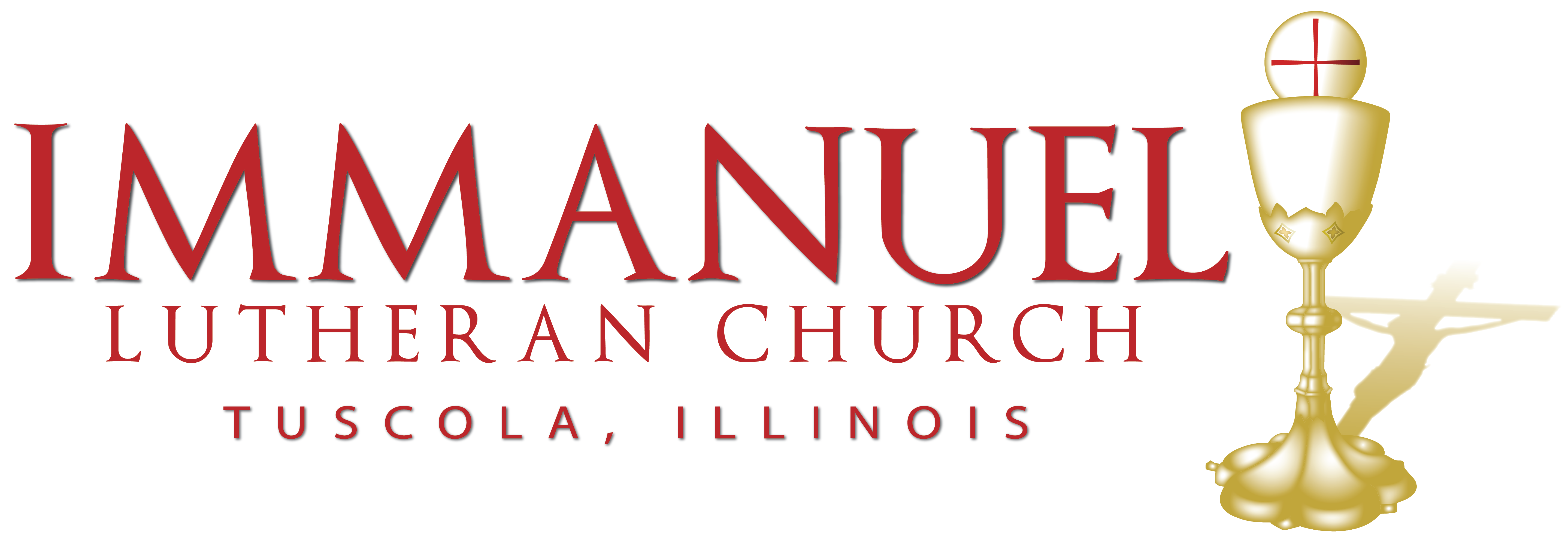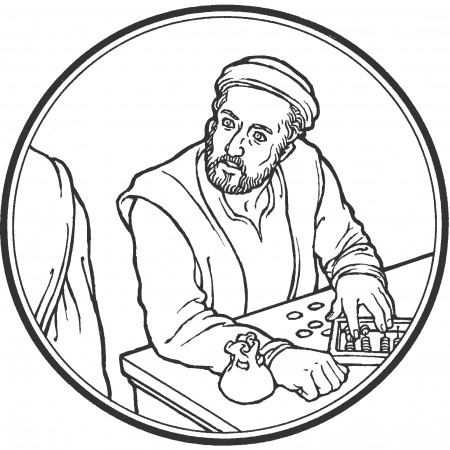The Feast of St. Matthew, Apostle and Evangelist
Matthew 9:9–13
+ IN NOMINE IESU +
If there ever was a man held not to be above reproach, Matthew likely fits the bill. He represented, in his office as a tax collector and thus in his person, everything that was hated and despised in his day and perhaps even in ours. He belonged to the lowest rank of people: both a traitor and a cheat. And he reveals that he is indeed not above reproach when he left his post, his former life, at Jesus’ call: “Follow me.” When, in humility and in repentance, he openly placed his former ignominious title aside and took up in its place those glorious titles: Disciple of, Apostle of, and Evangelist of Jesus Christ. In so doing, he took up the instrument, used in his prior profession to record debts paid and owed, to published the first record of the magnificent mercy of him who came to heal the sick not the healthy and to call not the righteous but sinners.
“Follow me.” This is Jesus’ call given to Matthew. And in these two words are wrapped up the whole of Christianity, the totality of faith. It is discipleship pure and simple. Jesus called him to be his disciple, that is, to abide in his discipline, to abide in his teaching. There are no marketing gimmicks, no glossy inserts, no catchy blog posts, just these two little words: a verb, with subject implied, and an object. “Follow me.” Jesus called, and his call made it so.
“Follow me.” But where does he lead? To follow Jesus, Matthew must leave everything behind: to let the dead bury the dead, to put his hand to the plow and not look back, to have no mother or father, brothers or sisters, no place to lay his head, to have only Jesus. To follow Jesus is to follow him to the cross, to follow him to death. For when Jesus says, “Follow me,” it is an invitation to death. Jesus leads Matthew through the Promised Land occupied and defiled by Romans, under Pharisaic abuse, without a place to lay his head, until it finally rests in its resting place against the cross and in the tomb. He leads him to death, for he calls sinners not the righteous. And sinners must die. They must be killed for the wages of sin is death. He leads him to death for wherever Jesus is there will his servants be also—a servant is not above his master. And it is only through death that Matthew will ever really see life, even as a seed must first die before it sees its life in the fruit it produces, so, too, sinners die only to rise to new life, for death in Jesus is no death at all but the way to true life for he is the way, the truth, and the life.
“Follow me” . . . the call goes out to you. And your call, like his, was not your own doing, but God’s elective grace. He called you by name. He gave you no choice. He simply stepped on the head of the serpent and pulled you out of the font’s drowning waters to life. That is not to say that you cannot now reject this grace. Indeed, Judas Iscariot was called like Matthew, but he thought he could do better. He threw his lot in with the devil and received the devil’s reward. You had no choice in conversion. His Word made you what it said, but, His call does not coerce. You do now have a choice. You have, in fact, daily choices. And those choices matter. We make dozens, if not hundreds of little choices everyday. And they matter. C. S. Lewis wrote in Mere Christianity that “ . . . every time you make a choice you are turning the central part of you that chooses into something a little different from what it was before. And taking your life as a whole, with all your innumerable choices, all your life long you are slowly turning this central thing either into a heavenly creature or into a hellish creature; either into a creature that is in harmony with God, and with other creatures, and with itself, or else into one that is in a state of war and hatred with God, and with its fellow-creatures, and with itself” (Mere Christianity, 87). Our choices matter. And the choices we make are dependent upon what we’re influenced by; who we’re talking to, what we read and watch and listen to, on our prayer life and worship life. Whether we’re being fed by the Holy Spirit through God’s unchangeable Word or by the devil, the world, and our sinful nature.
Our choices matter. For it is in our choices that we show our true allegiance. Our choices reveal whose disciple we really are. Are you following our Lord or are you following the the devil, the world, and your own sinful nature? Are you choosing what makes you or your children happy or what instills in you and them faithfulness, choosing what strengthens and keeps you all firm in His Word and faith until death? All choices that aim at faithfulness will eventually lead to true happiness; however, not all choices that aim for happiness result in faithfulness. Our choices matter, and our Lord’s call, “Follow me,” summons us to align our choices with Him, with faithfulness, surrounding us with those things that will influence our hearts and minds toward heavenly things and not hellish things. If we’re being honest, our choices are never fully focused and engaged on that. Repent.
But Jesus desires mercy, not sacrifice. He would rather sacrifice Himself and be free to love men than He would have us be destroyed and pay for our own sins. He would rather carry our burden, suffer our violence and shame, and be forsaken by the Father, than have us suffer the demands of justice. This is what it means that He desires mercy and not sacrifice. He desires to be merciful, to make full payment and fulfill His own wrath for us rather than have us die eternal death.
So He who knew no sin became sin to defeat sin and call sinners to righteousness. He died to kill death. He rose to inaugurate life. To this day, the risen, living Savior welcomes the worst of society, the sickest and most depraved. He does not shrink away no matter how bad, how miserable, how disgusting or vile men are. The innocent Son of God died for the guilty without strings or demands. He did it knowing that most would reject Him. But it is not a tragedy. It causes the angels to rejoice. It is the Good News of God’s love for man in Christ Jesus. He would not stop until every last person had been reconciled to the Father, the total cost paid in full, because He desires mercy and not sacrifice. It is who He is.
So “Follow me.” The call rings on. Follow Jesus. Be dead to self, but alive in Christ. Ignore the Pharisees. Make no comparisons. You are loved. You are forgiven. You are whole. For you are Baptized! The Father’s will has been done for you. His desire for mercy has been satisfied in His Son. He has defeated the enemy and silenced your accuser. He has won your soul. And now, He lays out the foretaste of the Feast to come. He invites you to come and eat His Body, drink His Blood, that you would have strength for the day and courage for tomorrow. Come, have fellowship with sinners made saints. Join with angels and archangels, apostles and evangelists, prophets and martyrs. And of all things you could have done this morning, you have chosen this. And you have chosen wisely. For you are in good company. God is your Father. These are your brothers and sisters. Jesus is your Savior, your King, your Defender, and your Friend. You are in good company. Amen.



0 Comments